Lung cancer is an uncontrolled growth of cells that start off in the lungs. Usually, lung cancer starts in the cells that line the air passages. Instead of developing into healthy lung tissue, the cells divide rapidly and form tumours.
Lung cancer can grow and spread beyond the lung to reach other parts of the body through metastasis. Lung cancers can begin in any part of the lung, but 90 percent of lung cancers begin in the epithelial cells, which are the cells lining the larger and smaller airways also known as bronchi and bronchioles.
This is the reason why lung cancers are sometimes called bronchogenic cancers or bronchogenic carcinomas. Lung cancer is the most common cancer in the world, among both men and women. It is the leading cause of cancer deaths worldwide.
Long-term smoking is the main cause of lung cancer. After smoking, genetic factors and exposure to radon gas, asbestos, second-hand smoke or other forms of air pollution can also increase the risk of lung cancer.
There are two major types of lung cancers, based on the appearance of lung cancer cells under the microscope:
It is necessary to determine the stage of lung cancer by finding out how far cancer has spread, before initiating treatment of lung cancer.
The following are the four lung cancer stages of NSCLC:
After the determination of stage, treatment of lung cancer starts with choosing the best suitable option for the patient. However, there is usually no single treatment for lung cancer. So the patient often receives a combination of therapies and palliative care.
Lung cancer symptoms may vary, depending upon where and how widespread the tumour is. A person with lung cancer may have following lung cancer symptoms:
Before preparing a plan for the treatment of lung cancer, the surgeon advised a few tests to conduct a thorough diagnosis. To start with lung cancer diagnosis, the doctor first conducts a series of physical examination, which may include a chest examination, analysis of blood in the sputum, and others.
Next, some common techniques such as chest X-ray, bronchoscopy, CT scan, MRI scan, PET scan, fine-needle aspiration (a kind of biopsy), and molecular testing can be used to diagnose the type of lung cancer and the stage and extent of cancer. The best hospitals for lung cancer treatment have all the facilities required for proper diagnosis and treatment of the disease.
Once the diagnosis is done and the stage of cancer has been identified, the doctor may prepare a plan for treatment of lung cancer. It may include a surgery, followed by a few cycles of chemotherapy and radiation therapy.
The selection of specific treatment modalities will depend on the stage of cancer, availability of facilities, and the overall health of the patient. This is the reason why a patient must choose the best lung cancer hospital so that all the facilities can be availed under a single roof.
Take the following steps if a lung cancer surgery has been scheduled:
The treatment of lung cancer may include the following modalities:
Surgery is the best treatment if the lung cancer is in its early stages. In the early stages, it is possible to cure a patient completely by removing the tumor and the nearby lymph nodes. But after cancer has spread, it is nearly impossible to remove all of the cancer cells with the help of surgery.
There are some specific types of surgical procedures for different location and kinds of lung cancers, such as wedge resection of the lung (removal of a portion of one lobe), lobectomy (removal of one lobe), pneumonectomy (removal of an entire lung) and lymphadenectomy (removal of lymph nodes in the region of the lungs). After the surgery, margin tissues are further studied to see if cancer cells are present or not.
Lung cancer surgery is a major surgical procedure that requires hospitalization, general anesthesia, and follow-up care for a few weeks to several months. It also carries side effects like any other surgery, including complications related to bleeding, infection, and general anesthesia.
This treatment uses high-energy X-rays or other types of radiation to destroy or shrink lung cancer tumors. Radiation therapy can be given as a curative therapy, palliative therapy, or as adjuvant therapy combined with surgery or chemotherapy.
Radiation therapy damages the molecules that make up the cancer cells. However, it can damage the normal, healthy tissues. But nowadays improved technology can focus the radiation on precise locations for certain lengths of time, thus reducing the risk of damage to the surrounding healthy tissues.
Chemotherapy is a strong medication treatment, which interferes with the cell division process and damage proteins or DNA to reduce cancer cells. NSCLC and SCLC, both types of lung cancers can be treated with chemotherapy. Chemotherapy might be given in the form of pills, intravenous infusion, or as a combination of both.
However, drugs used in chemotherapy also kill normally dividing cells in the body that may lead to unpleasant side effects. Some of the common side effects of chemotherapy are vomiting, diarrhea, appetite loss, hair loss, fatigue, anemia, infections and more. These side effects may be felt temporarily during treatment, and several drugs exist to help patients cope with the symptoms.
Drugs used in this treatment work by targeting specific abnormalities in the cancer cells. Some of the drugs in this treatment can also strengthen the activity of the immune system against cancer cells. But mostly this treatment only works in people whose cancer cells show certain genetic mutations.
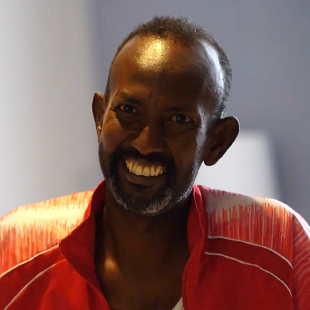
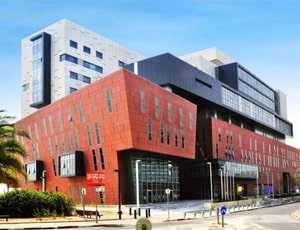
Tel Aviv, Israel
Assuta Medical Center is a leading private hospital in the capital city of Tel Aviv in Israel. Assut...more
![]() Accommodation
Accommodation
![]() Airport Transfer
Airport Transfer
![]() Choice of Meals
Choice of Meals
![]() Interpreter
Interpreter
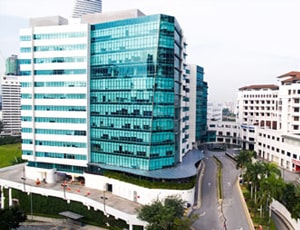
Kuala Lumpur, Malaysia
History Parkway Pantai Hospital in Kuala Lumpur, Malaysia is operating under the Parkway Pantai gro...more
![]() Accommodation
Accommodation
![]() Airport Transfer
Airport Transfer
![]() Choice of Meals
Choice of Meals
![]() Interpreter
Interpreter

Delhi, India
Equipped with more than 50 specialty institutes, Indraprastha Apollo was started with the vision of ...more
![]() Private Rooms
Private Rooms
![]() Translator
Translator
![]() Nursery / Nanny Services
Nursery / Nanny Services
![]() Airport Pick up
Airport Pick up
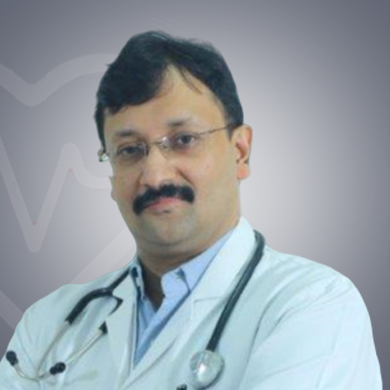
Medical Oncologist
Delhi, India
16 Years of experience
USD 32 for video consultation

Surgical Oncologist
Delhi, India
15 of experience
USD 45 for video consultation
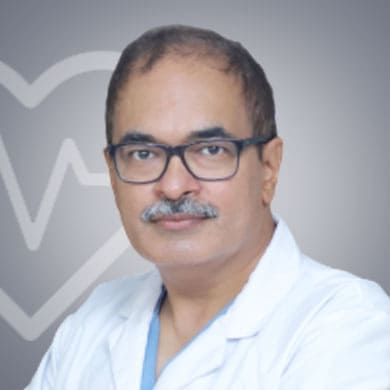
Oncologist
Delhi, India
16 Years of experience
USD 28 for video consultation

Medical Oncologist
Gurgaon, India
18 Years of experience
USD 48 for video consultation
Q: Which lung cancer treatment is the most effective?
Each therapy has its own benefits. The course of treatment chose depends on the type of cancer and its stage. The treatment chosen is often most effective in the treatment of that particular stage of lung cancer.
Q: Can lung cancer be cured without surgery?
A: Surgery is almost always recommended to remove a major chunk of cancer. However, cancer is rarely removed completely with the help of a surgery. It is often followed by adjuvant therapy such as chemotherapy and radiation therapy for proper treatment and cure. Small cell lung cancers are, on the other hand, diagnosed at a stage where it is not possible to treat it with the help of a surgery as it has spread beyond the lungs.
Q: How effective is radiotherapy for lung cancer?
A: Radiotherapy is highly effective for the treatment of lung cancer, especially small cell lung cancer.
Q: Is lung cancer curable?
A: That depends on the stage and extent of cancer. Lung cancer that is restricted to just one location and has not spread to the lymph nodes and other tissues can be cured with surgery and a combination of chemotherapy and radiation. But there is no guarantee that it is completely cured.
Q: What is the survival rate for lung cancer?
A: The 5-year survival rate of an individual with early-stage lung cancer is around 52 percent. The 5-year survival rate for patients with stage 3 lung cancer or beyond is just 4 percent.
Q: What is the cost of lung cancer treatment?
A: The cost of lung cancer treatment varies from one patient to the other. Additionally, it depends on the type of treatment modalities used to eliminate cancer and the extent of rehabilitative services used.
Q: What is the cost of chemotherapy for lung cancer?
A: The cost of chemotherapy for lung cancer may vary from $300 to $3000 per cycle, depending on the type of drugs used and the frequency of use.
Q: Which factors affect the cost of lung cancer treatment?
A: The duration of treatment, type of surgery conducted, the overall health of the patient, hospital charges, the experience of the surgeon, and the number of cycles of radiation and/or chemotherapy conducted.